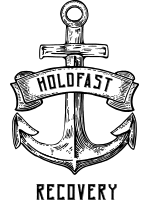
At Holdfast Recovery, we know firsthand that many people struggle with post-traumatic stress disorder (PTSD). PTSD and addiction are all too prevalent in today’s chaotic and unpredictable society. Why do they seem bonded together, though?
The effects of PTSD make people feel as if life is spiraling out of control. Turning to drugs or alcohol can seem to offer a quick escape. Unfortunately, this way of coping often leads to alcohol dependence or drug addiction, which leads down an even darker path.
The good news is that if you or a loved one is struggling with this condition, you’re not alone. Holdfast Recovery can help you overcome co-occurring PTSD and substance abuse so you can get back to feeling like yourself.
What Is Post-Traumatic Stress Disorder?
Post-traumatic stress disorder is a treatable mental illness that causes persistent mental or emotional stress as a result of a traumatic experience. These experiences may include a serious accident or injury, acts of terrorism, military combat, the death or near-death of a loved one, physical or sexual abuse, and many other emotionally catastrophic events.
The severe symptoms and side effects of PTSD make it a herculean effort just to live a normal life. People with PTSD may struggle with anxiety, depression, irritability, and a variety of other symptoms that isolate them from others, making it even more difficult to get help.
Developing PTSD usually begins within a month after the traumatic incident, but sometimes may take several months or years to surface.
While Post-traumatic stress disorder is typically referred to as a single condition, it actually has four manifestations. These include:
Manifestations of PTSD
- Intrusive memories
- Avoidance
- Changes in physical and emotional reactions
- Negative changes in thinking and mood.
What Are the Signs and Symptoms of PTSD?
Some of the most common PTSD symptoms include:
- Recurrences of unwanted, distressing memories
- Flashbacks (reliving the trauma as if it’s happening again)
- Nightmares or night terrors about the traumatic event
- Suffering from severe emotional distress or physical reactions when reminded of the trauma
- Avoidance of discussing the traumatic event
- Avoiding places, people, or activities that remind a person of the trauma
- Changes in behavior
- Difficulty maintaining close relationships
- Feeling emotionally numb
- Feeling a sense of detachment from friends and family
- Trouble sleeping
- Overwhelming guilt or shame
- Irritability
Please note that symptoms vary greatly between individuals, so the symptoms you suffer may be different from those of another person. In a confidential, safe session, we would be happy to talk to you about the different symptoms and types of PTSD, along with which treatments may be the most beneficial.
PTSD and Co-Occurring Substance Abuse. Why Both?
Post-traumatic stress disorder and addiction are often seen as “co-occurring” because substance use (legal or illicit) is a common way people numb themselves from the emotional pain their condition causes. In fact, close to three-quarters of people who survive a violent trauma admit to having alcohol or substance use disorders.
You see, after going through a major trauma, the brain creates fewer endorphins. As a result, a person may feel less happy and self-medicate with substances they believe will help, like drugs or alcohol. This may even work for a while, lulling them into a false sense of security, but over time, the body adjusts and can come to rely on these substances to function.
Since this is a mental health disorder that affects the way the brain works, most people who suffer from PTSD also exhibit the hallmark signs of anxiety, depression, and agitation. The change in the brain’s chemistry is very similar to the same changes caused by substance abuse and addiction. When combined, they can magnify negative emotions to a nearly unbearable level, unfortunately, this often results in an addiction that spirals out of control.
Coping with PTSD
Learning healthy ways to cope with PTSD can be challenging, but there are some proven ways to work through trauma reactions. While it might seem reasonable to try to avoid triggers, avoidance is often not possible. Instead, you should develop a mental toolkit of methods you can use to cope with the maelstrom of emotions that come with a PTSD episode. Some healthy strategies for coping with PTSD include:
- Engaging in positive social interactions. Isolation can enhance the symptoms of PTSD, and spending time with friends or family can ease the mind. Quiet conversation, playing card games, and taking walks with a friend are easy ways to develop connections that help you cope. Attending support groups with other PTSD sufferers can help you feel less alone by providing access to others going through the same thing.
- Practicing mindfulness. Meditation, prayer, and journaling can all help calm your body and mind, making it easier to work past physical and emotional PTSD symptoms.
- Participating in physical activity. Exercise can help boost your mood and reduce stress, making it an essential component of coping with PTSD. Developing a consistent exercise routine, even if it’s only a short daily walk, helps your body better regulate emotions. Exercising outdoors may offer even more benefits.
- Getting professional help. A professional counselor or behavioral therapist may use proven therapies, such as cognitive-behavioral therapy (CBT), exposure therapy, or eye movement desensitization and reprocessing (EMDR), to resolve traumatic memories and help you develop effective healthy coping skills.
- Taking prescribed medication. Your doctor may prescribe medication to reduce anxiety, help you sleep better or stave off depression. Medication is typically used in conjunction with behavioral therapy, not in place of it.
Get Help at Holdfast Recovery
At Holdfast Recovery, we are here for you every step of the way when you’re dealing with trauma and substance abuse. We know you’ve tried your best to cope in the past, but now we want to help you find newer, safer ways of dealing with your stress and trauma.
Complete Holdfast’s online contact form or call us today at (800) 680-7738 to speak with one of our helpful substance abuse counselors about the treatment program we offer. We treat substance abuse and help heal your trauma so you can move forward and feel like yourself again. If you are struggling to find hope, Holdfast Recovery is here for you.

